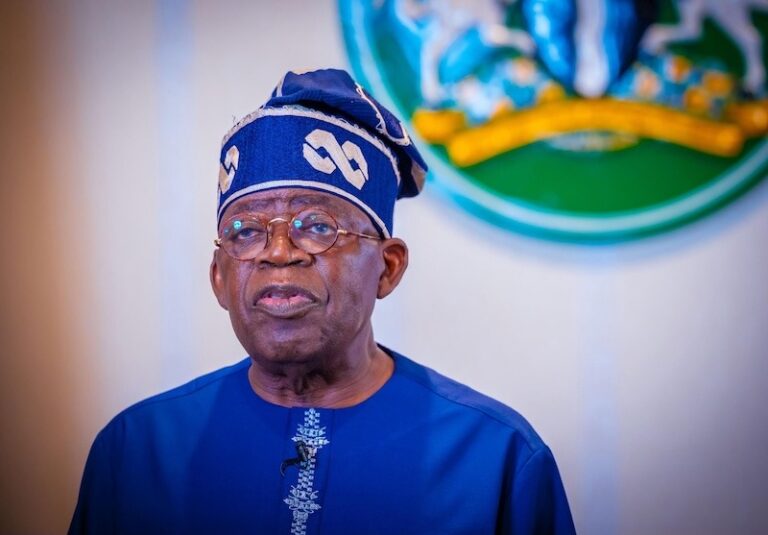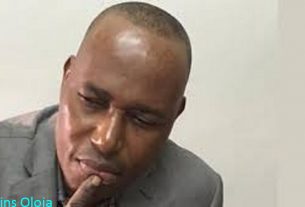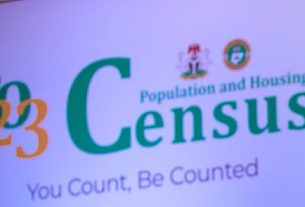resident Bola Tinubu
The recent public adoption of President Bola Tinubu as the sole candidate of the All Progressives Congress for the 2027 presidential election, announced at a party summit, flagrantly violates the 2022 Electoral Act and raises serious concerns about the future of Nigeria’s democracy.
This move sets a dangerous precedent that threatens to undermine democratic principles before the next general elections.
Section 84(9) of the 2022 Electoral Act clearly states: “A political party that adopts a consensus candidate shall secure the written consent of all cleared aspirants for the position, indicating their voluntary withdrawal from the race and their endorsement of the consensus candidate.” There is no ambiguity here.
Moreover, Section 11 mandates: “A special convention or nomination congress shall be held to ratify the choice of consensus candidates at designated centres at the National, State, Senatorial, Federal and State Constituencies, as the case may be.”
The APC’s public adoption of a sole candidate without fulfilling these statutory requirements is a brazen disregard for the law and democratic norms.
In well-established democracies, party candidate selection processes are transparent and competitive.
In the United States, major parties hold primary elections or caucuses where party members vote to select their presidential candidates, ensuring broad participation and legitimacy.
The ruling party’s premature and unilateral endorsement of a sole candidate, two years before the election and without an official timetable from the Independent National Electoral Commission, signals a troubling disregard for the democratic process.
Meanwhile, the opposition’s defections to the APC for political expediency further weaken Nigeria’s democratic culture. By abdicating their role as watchdogs, opposition parties are inadvertently enabling the erosion of democratic checks and balances.
Efforts by the Big Tent Coalition Shadow Government, a cross-sectoral think tank established by Pat Utomi to step into the gap created by the opposition party, are being repelled by the institutions of government.
Nigeria’s electoral system has long been plagued by irregularities. The replacement of secret ballot booths with flimsy contraptions that hide nothing facilitated vote-buying and voter intimidation.
The 2012 Ondo governorship election marked a turning point when vote-buying became overt, yet security agencies and electoral officials failed to intervene.
Today, vote-buying and voter-suppression are a great albatross of elections in Nigeria. The latest brigandage is the public adoption of candidates. The seed must be exterminated before it escalates and throws Nigeria into a one-party contraption.
The political climate is sombre. Elections are won by the highest bidder.
In the local government elections conducted in over 20 states across the country in 2024, ruling parties won despite the acute hunger and hardship that should have ordinarily made voters vote for non-performing parties, as was demonstrated in Ghana in 2024.
Consequently, voter turnout has been on a steady decline: 57.54 per cent in 2007, 53.68 per cent in 2011, 43.65 per cent in 2015, 34.75 per cent in 2019, and 26.72 per cent in 2023, the lowest since the return to democracy in 1999. This apathy reflects public disillusionment with a system perceived as rigged.
Undoubtedly, the curious endorsements and defections could be a smokescreen to control the outcome of the forthcoming and subsequent elections.
The manipulators of the political system should learn from history and tread with caution. Nigeria has always survived the conflagrations foisted on it by political predators. The late Head of State, Sani Abacha, engaged in a self-succession bid but failed.
While multiparty democracy lubricates and strengthens representative government, internal democracy among parties prepares them for the competitive political and electoral enterprise.
Making Nigeria’s democracy work is the collective responsibility of the people, the civil society organisations, and the media.
In a functional democracy, leaders will be challenged to perform knowing that they can easily be replaced for good governance to thrive. Otherwise, there will be an open invitation to autocracy and bad governance.
The Punch





